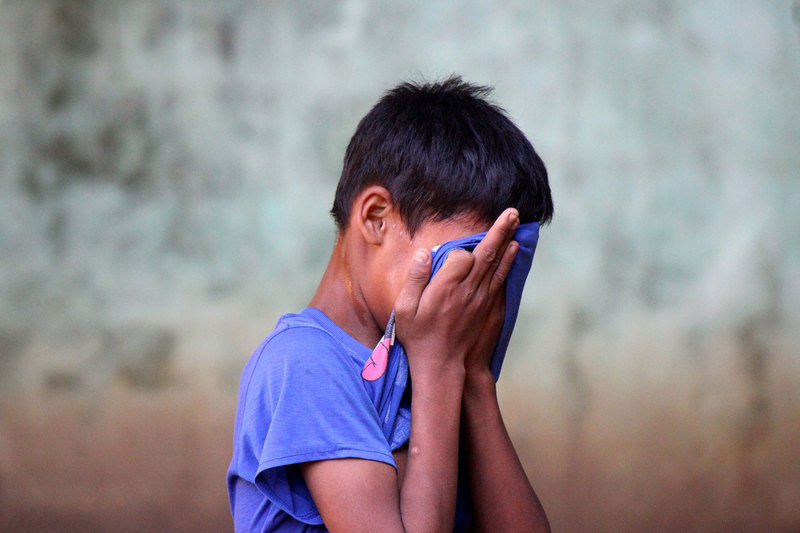Redress mental healthcare for children and adolescents in South Africa
08 June 2023 | Story Staff writer. Photo Unsplash. Voice Cwenga Koyana Read time 7 min.
Child and adolescent mental health is the foundation of a strong, vibrant and caring society. Yet, South Africa’s youth are near breaking point. Far too many children and adolescents are struggling with mental health challenges and are unable to access the care and support they need.
Despite the recently released National Mental Health Policy that affirms government’s commitment to prioritise the needs of children and adolescents, the country’s child and adolescent mental healthcare services sector is in crisis. And recent cuts in healthcare spending pose further threats to service delivery in this vital sector.
In light of this, the University of Cape Town’s (UCT) Children’s Institute (CI); the Centre for Public Mental Health; and the Centre for Autism Research in Africa are calling on government to put the necessary human and financial resources in place to close the treatment gap and ensure that young people are able to access the mental healthcare services they need. The three centres are working in partnership with the Institute of Life Course Health Research at Stellenbosch University, and the South African Association of Child and Adolescent Psychiatry and Allied Professions.
Mental health disorders in children
In 2022, the CI published the South African Child Gauge that focused specifically on children’s mental health. The report highlighted that South African children are exposed to extraordinarily high levels of adversity, which increases their risk of developing mental health challenges. A whopping two-thirds of children (63%) in South Africa live below the upper-bound poverty line. Nearly one in two children (42%) have experienced violence, including physical violence (35%) and sexual abuse (35%). In some parts of the country, almost all children have either witnessed or experienced violence in their homes, schools and/or communities.
So, it’s not surprising that more than one in 10 children in South Africa have a diagnosable and treatable mental health disorder. This includes depression; anxiety; post-traumatic stress disorder; conduct, learning and substance-use disorders; as well as neurodevelopmental disorders such as attention deficit-hyperactivity disorder and autism.
“Our failure to support children’s mental health can ripple out across their lives and across generations.”
According to the researchers, mental health challenges in young people manifest differently. They cause distress for both children and their families, and interferes with children’s ability to function in everyday life. Academics argue that without the necessary mental health support, children may struggle to perform well at school, and in turn, this contributes to higher rates of absenteeism, grade repetition and dropout levels – undermining their future education and economic prospects. On the flip side of the coin, other children may start to self-medicate or resort to self-harm to cope with their symptoms. They may also channel their anger and distress outwards through disruptive, harmful, and in some instances, criminal behaviour.
“In this way, our failure to support children's mental health can ripple out across their lives and across generations,” a statement read. “Half of all adult mental [health] disorders begin before the age of 14. So, we need to intervene early – in childhood and adolescence.”
An understaffed and underfunded area
In order to provide children and adolescents with the support they need, researchers believe that adopting early interventions is crucial. But, despite the National Department of Health’s Child and Adolescent Mental Health Policy, implemented in 2003 to strengthen services and support young people, child and adolescent mental healthcare services in the country remain severely understaffed and underfunded.
Only 15 child and adolescent psychiatrists are currently working in the public healthcare system. In most communities, mental health services for young people are simply unavailable – leaving nine in every 10 children with a diagnosable mental health disorder, but unable to access treatment. In addition, very few healthcare facilities have dedicated centres for children and adolescents with acute mental health illness. As a result, adolescents who require treatment are kept in adult wards where they may be exposed to adult psychiatric patients and assessed by staff who lack the appropriate skills and expertise to treat children and adolescents.
“Policy commitments alone will not be enough to close the treatment gap. They need to be underpinned by dedicated budgets and implementation plans.”
“In April this year, we welcomed the release of the new National Mental Health Policy Framework and Strategic Plan 2023–2030, and the Department of Health’s commitment to prioritise child and adolescent mental health. But we remain wary that these may be empty promises and that children’s needs may again get side-lined following cuts to government spending on health care services,” the statement indicated.
“Policy commitments alone will not be enough to close the treatment gap. They need to be underpinned by dedicated budgets and implementation plans, and strong leadership at provincial level. And they need to be incorporated into the baskets of care funded by medical aids and the National Health Insurance.”
A call to action
To ensure children and adolescents’ mental health is prioritised, the CI and its partner organisations have put together a petition calling on Minister of Health Dr Joe Phaahla and Minister of Finance Enoch Godongwana to put those resources outlined in the 2003 Child and Adolescent Mental Health Policy in place and to:
- increase the number of facilities that offer child and adolescent mental health services and ensure that these services are private, confidential and operate at times that work for children and adolescents’ schedule
- involve young people in the design of child- and adolescent-friendly mental health facilities
“We are calling on all those who care about young people’s mental health to sign our petition.”
- develop a set of children and adolescent mental health service standards to facilitate monitoring and evaluation
- invest in training, supervision and support programmes for healthcare workers at primary healthcare levels in order for them to screen and treat children with common mental health disorders and refer those who require more specialised care
- scale up specialised training of child psychiatrists, child psychiatric nurses, psychologists and social workers
- establish provincial leadership and ringfenced budgets to drive the implementation of child and adolescent mental health services on the ground.
“We are calling on all those who care about young people’s mental health to sign our petition. We cannot afford to still be asking the same questions in 2043. The time to act is now,” the statement read.
For more information visit the South African Child Gauge 2021/22.
 This work is licensed under a Creative Commons Attribution-NoDerivatives 4.0 International License.
This work is licensed under a Creative Commons Attribution-NoDerivatives 4.0 International License.
Please view the republishing articles page for more information.










